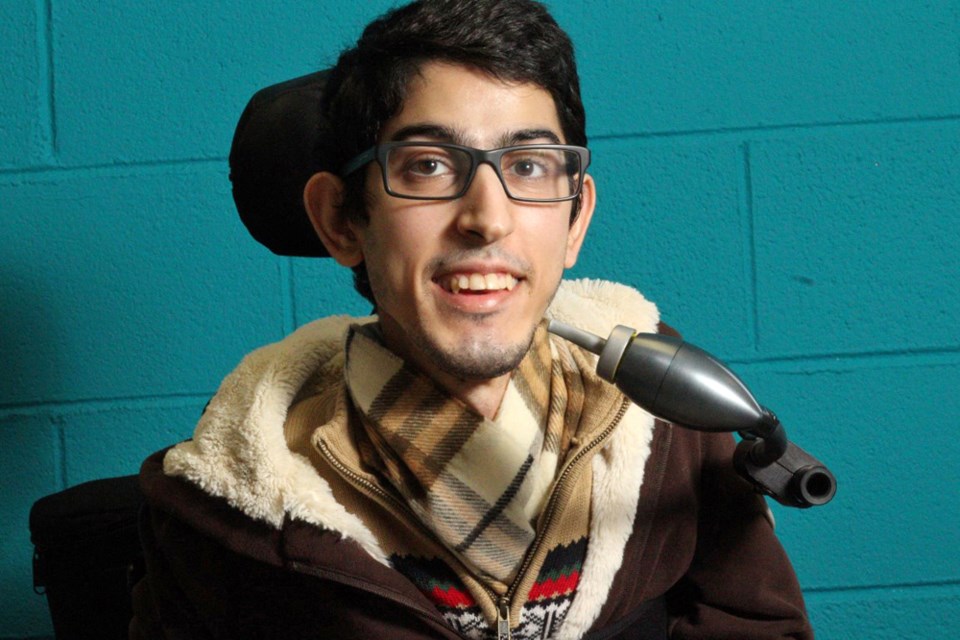A Burnaby-based Canadian non-profit will use a US $800,000 grant from Google.org to help people who can’t use their hands operate touch-screen mobile devices.
The Neil Squire Society is a national organization that uses technology to empower people with physical disabilities.
Its latest product, the LipSync, allows users to control a computer cursor with a minimum of head and neck movement using a mouth-operated device.
Like the Jouse (an earlier product developed by Neil Squire) the LipSync features a hollow mouthpiece, allowing users to perform left and right mouse-button clicks by alternatively puffing or sipping into the tube.
The mouthpiece is attached to a precision miniature joystick sensor that needs only a very slight pressure on the shaft to move a cursor up and down.
All the electronics are housed in the ‘head’ of the device so there are no extra control boxes, making the LipSync a good candidate for portable, wheelchair-mounted applications.
The US $800,000 Google grant (more than $1 million in Canadian dollars), through the Google Impact Challenge, will allow Neil Squire to take the current LipSync prototype and release it as an open-source, affordable solution that will enable the estimated one million people in Canada and the U.S. who have difficulty using their hands to operate touch-screen mobile device.
“The support of Google.org will enable us to take our LipSync from prototype in our R&D department into the lives of people with disabilities,” Neil Squire executive director Dr. Gary Birch said in a press release Tuesday. “Mobile technology has changed the lives of everyone, but can be a new barrier to people that are unable to use their hands. The LipSync solves this problem, and our model of releasing it open source will ensure it is an affordable option that can be customized to the specific needs of people with disabilities worldwide.”
For more information about the LipSync project, visit http://tinyurl.com/NeilSquireLipSync.



